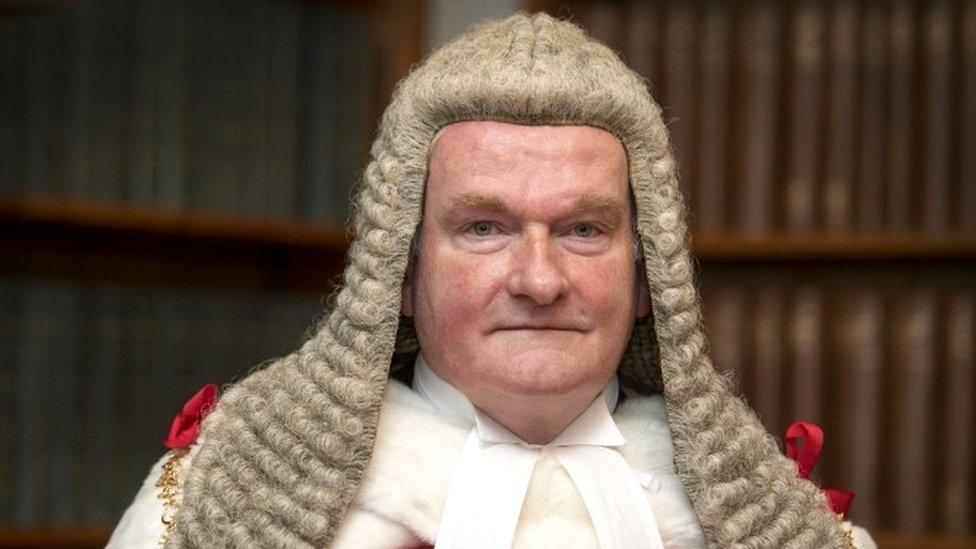Plan to teach new MPs not to lobby judges in England court cases
- Published

Lord Burnett is concerned MPs don't know where the boundaries are
The Lord Chief Justice of England and Wales is considering the unprecedented step of briefing new MPs that they must not try to influence judges.
Lord Burnett said that the idea was being actively discussed among the senior judiciary because they had less confidence than before that all parliamentarians understood the independence of judges in the British constitution.
The idea has emerged following a rebuke from the Lord Chief Justice's office to a group of Conservative MPs and a peer.
They had lobbied judges over the potential public release of the statements they had given to a court in support of former MP Charlie Elphicke, jailed for two years for sexually assaulting two women.
Journalists had asked for disclosure of the character statements, which were considered by a judge as she decided on Elphicke's sentence, a standard part of many criminal cases.
The Lord Chief Justice told his annual press conference there had been "nothing quite like" the letter - although it was not the first time an MP had tried to lobby a judge behind the scenes.
"There was an unfortunate letter early last week to two senior judges, copied to the trial judge, which appeared to be an attempt by a group of parliamentarians to influence the outcome of a pending decision," he said.
"I'm pretty confident the judges understand where the boundaries lie. But I'm less confident at the moment that all parliamentarians have an instinctive understanding of where those boundaries lie.
"It's something which I and other senior judges have been thinking about quite deeply recently.
"It does seem to me, even if it amounts to a very short briefing provided to new members [of Parliament] on the boundaries between our respective roles, and the need to respect the independence of the judiciary, that is something that we are thinking about."
Lord Burnett said he had experience of a "handful" of letters from MPs lobbying judges on behalf of constituents - but they had always been dealt with the same way.
The judge would reveal the contents of the letter to all those involved in a case - and make clear that that they were not going to take any notice of it.